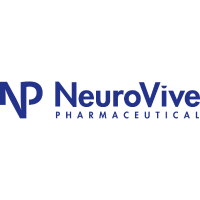
NeuroVive Pharmaceutical has announced positive results from clinical and preclinical studies with its drug NeuroSTAT for the prevention of the sequelae of traumatic brain injury (TBI). The company is now preparing for the next clinical study with NeuroSTAT for TBI.
The combined positive outcome of the results from the clinical phase IIa CHIC (Copenhagen Head Injury Cyclosporine) study, conducted at Rigshospitalet in Copenhagen, Denmark, and the preclinical studies, done in collaboration with the University of Pennsylvania (Penn), USA, have now convinced NeuroVive to proceed into the next stage of clinical development. The company has therefore decided to close the CHIC study in advance and focus its TBI project efforts on preparing for the next clinical study with NeuroSTAT for TBI.
The results of the open label CHIC study show that appropriate dose-dependent concentration levels can be measured in the blood, and that NeuroSTAT reaches the target, the central nervous system (CNS). No unexpected safety signals were detected. Thus, the primary objective of CHIC to demonstrate safety and elucidate pharmacokinetics of NeuroSTAT at two different dose levels (5 and 10 mg/kg/day) in patients with severe TBI has been reached.
A significantly reduced volume of brain injury (35% decrease) after NeuroSTAT treatment was observed in MRI scans in the experimental TBI studies done in collaboration with Penn. Furthermore, these studies displayed positive changes in brain energy metabolite levels and mitochondrial respiratory function, as well as decreased generation of reactive oxygen species.
“The NeuroSTAT effects observed in our state-of-the art experimental model for TBI are very promising. Our collaborative approach on preclinical study design will set a completely novel standard in the development of new drugs in the field”, said Susan Margulies, PhD, Professor in the Department of Bioengineering at the University of Pennsylvania, US, and lead investigator for the preclinical studies.
“The positive results are important milestones for the NeuroSTAT clinical development program. We now have the data we need to move forward to the next phase in the clinical development. We want to thank all site staff, caregivers, patients and families at Rigshospitalet in Copenhagen for their valuable contribution to this project. Also, we wish to thank the team at Penn for a very fruitful collaboration that has given very important scientific support to the NeuroSTAT clinical program”, said Erik Kinnman, chief executive officer at NeuroVive.
“With the decision to move forward with the TBI program, the company’s project portfolio have matured further and the approach of protecting the mitochondria in TBI with NeuroSTAT is validated by the new data. Importantly, we are about to take another step towards developing a medicine to patients with TBI, which is an area of high unmet medical need”, he continued.
NeuroVive has initiated preparatory activities for the continued clinical development program. Next step is discussions with regulatory authorities in Europe and the US regarding the findings in the clinical and experimental studies, as well as the design of the next clinical study (Phase IIb proof of concept). Additionally, study preparations such as production of investigational medicinal product, approval of the clinical trial application, IND approval, ethics committee approval etc. need to be completed before study start.
The phase II CHIC (Copenhagen Head Injury Ciclosporin) study was an open label study. The primary objective with the study was to establish safety and to characterize the pharmacokinetic profile of two dosing regimens of NeuroSTAT in severe Traumatic Brain Injury (TBI) patients. In addition, exploratory measurements to evaluate the efficacy of NeuroSTAT at mitochondrial level, and study how NeuroSTAT affects various biochemical processes after a brain injury, are being processed Principal Investigator for the study is Jesper Kelsen, MD, PhD, Specialist in Neurosurgery, Department of Neurosurgery, Rigshospitalet, Copenhagen University Hospital.
In collaboration with Penn, NeuroVive has evaluated the effect of NeuroSTAT in a non-clinical experimental TBI model. A total of three substudies have successfully been conducted and completed. Positive results from the first two substudies established the pharmacokinetic profile of NeuroSTAT in blood, CSF and brain in the disease model, and showed that NeuroSTAT dose-dependently crosses the blood-brain barrier. The third and final sub study evaluated several different efficacy parameters related to mitochondrial function and metabolism, as well as advanced translational brain imaging MR techniques important in the design of the next clinical study. Further analyses are ongoing and additional data will be presented at the 7th Annual Traumatic Brain Injury Conference in Washington, DC, US on 24-25 May and at the Annual National Neurotrauma Symposium, Neurotrauma 2017, in Snowbird, Utah, US, on 9-12 July 2017.
Neurovive, neurostat clinical development, preclinical & clinical tbi studies